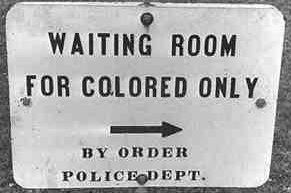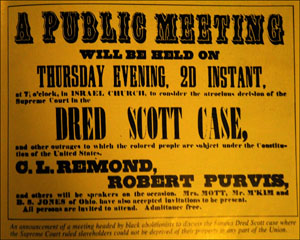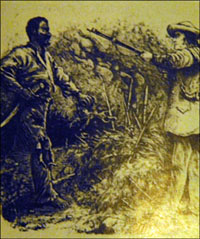Odyssey into Black History (Fall 2009)

Odyssey into Black History (Fall 2009)
|
This series provides my listeners with some of the major players in African-American History. Throughout out each episode I use a great deal of literature written by African Americans and members of other races, to get a well rounded scope of the African–American experience. Along with my analysis, I draw from ideas of other notable writers. Much is to be said about the African American experience in relation to the African–American family, intrarelations between African–Americans and interrelations between African–Americans and other races. In this series I present ideas on how the American legal socio–economic system, and psychology, from Slavery to the present, have molded the identity and behavior of the African American.

Frederick Douglass was born into slavery in February of 1818 as Frederick Augustus Washington Bailey. He was known and well respected for his work as an editor, orator, author, publisher, stateman and reformer. This episode touches the surface of the impact Douglass had on America. This is made clear through the words of poet, Paul Laurence Dunbar and a recorded segment titled The Douglass Years. It is extremely old, nonetheless, its contents are verifiable. From here we move into his body of literature, specifically, Narrative of the Life of Frederick Douglass, an American Slave. and open a discussion on the impact of Slavery on the African–American family structure.

This episode continues with the life of Frederick Douglass. You will hear the conclusion of the recorded account of his life and my opening discussion of the his well known autobiography, Narrative of the Life of Frederick Douglass, an American Slave.

This episode continues with the life of Frederick Douglass. I open a discussion on one of America's Supreme Court's worst decision in history, namely the decision that was handed down to resolve the Plessy vs. Ferguson case (1896). This decision resulted in the cementation of notorious "seperated but equal laws" throughout the United States. This episode initiates a discusses of how this decision has helped mold the psychology of African Americans. I also use a speech by Malcolm X to demonstrate how this decision has denegrated the African American to something subhuman.

This episode is a continuation of the discussion on Plessy vs. Ferguson and a deeper look into the question of civil rights vs. human rights. This distinction becomes more important as we look a the Dred Scott decision handed down by the Supreme Court in 1857, preceding the Plessy vs. Ferguson case. This case set the foundation for the Plessy vs. Ferguson case. If there were any question as to whether Blacks were to be considered human, this decision made it clear, that Blacks were nothing more than property and slaveholders were not to be deprived of their property any where in the Union.

in this episode I continue an exploration of Frederick Douglass' text and I draw a connection between the life on the plantation and the impact Nat Turner's famous slave rebellion had on laws governing the slaves. This rebellion took place in 1831 in Southamton Virginia and was led by Nat Turner, who was a slave. In this episode I play a reenactment of the court case, which ultimately led to the decision of having Mr. Turner hung. Enjoy!